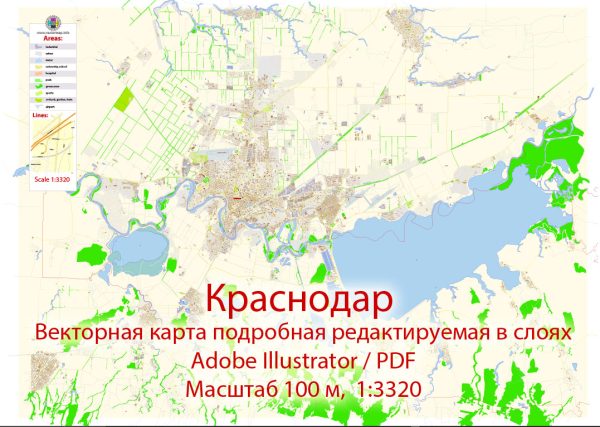Krasnodar, a city in southern Russia, has a rich history of urban development that spans several centuries. Here’s an overview of the historical development of Krasnodar:
- Early History: The region around present-day Krasnodar has a history dating back to ancient times. The area was inhabited by various nomadic tribes and later became part of the Bosporan Kingdom, a Hellenistic state that existed in the northern part of the Black Sea region.
- Imperial Russia: In the 18th century, the Russian Empire expanded its influence in the Caucasus region. Empress Catherine the Great issued a decree in 1793 that led to the establishment of the Kuban region, where Krasnodar is located. The city’s development was initially slow, and it served as a military outpost.
- Cossack Settlement: The city’s history is closely tied to the Cossacks, who played a significant role in the colonization of the region. Krasnodar became a center for the Kuban Cossacks, and their influence is still evident in the city’s culture and traditions.
- Soviet Era: The early 20th century brought significant changes, with the Russian Revolution of 1917 leading to the establishment of the Soviet Union. Krasnodar underwent urbanization and industrialization during this period. It became the administrative center of the Kuban-Black Sea Soviet Republic and later the Kuban Autonomous Soviet Socialist Republic.
- World War II: Krasnodar played a crucial role during World War II as it was a key location in the North Caucasus. The city was occupied by German forces for a brief period, and its liberation in 1943 marked a turning point in the war.
- Post-Soviet Era: With the dissolution of the Soviet Union in 1991, Krasnodar became part of the Russian Federation. The city experienced economic and social changes as it adapted to the new political landscape.
- Modern Development: In recent decades, Krasnodar has seen significant urban development. The city has undergone a transformation with the construction of modern infrastructure, residential areas, and commercial spaces. The development of parks, cultural institutions, and educational facilities has contributed to the overall improvement of the quality of life in Krasnodar.
- Cultural and Economic Hub: Today, Krasnodar is a vibrant economic and cultural center in the southern part of Russia. It is known for its cultural events, museums, and sports facilities. The city has attracted investment and has become a hub for various industries, including agriculture, manufacturing, and technology.
In summary, Krasnodar’s history of urban development reflects its evolution from a military outpost to a thriving regional center with a diverse cultural and economic landscape. The city’s journey has been shaped by historical events, including its role in the Russian Empire, the Soviet era, and the challenges and opportunities of the post-Soviet period.


 Author: Kirill Shrayber, Ph.D. FRGS
Author: Kirill Shrayber, Ph.D. FRGS